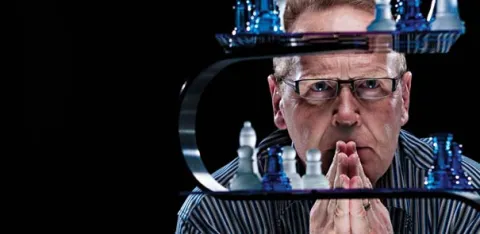Critical Thinking Pedagogy in the Classroom: Dr. Lance Grigg

“When students realize they can engage critical thinking, they begin believing more deeply in themselves. They feel self-empowered, and this gives them the self-confidence to be successful beyond the walls of the classroom.”
~ Dr. Lance Grigg
What is critical thinking? Are there effective pedagogies that nurture critical thinking? Critical thinking (hereafter CT) has become something of a buzz-word and growth industry these days. In short, CT is about problem-solving, problem-posing, developing sound arguments and simply, making good decisions. In turn, CT pedagogy is about developing teaching strategies that deepen the quality of our students’ capacities for sound reasoning across the curriculum. Dr. Lance Grigg, of the University of Lethbridge Faculty of Education, strives to teach his students about and for CT: “I advocate both an explicit and infused approach to teaching critical thinking,” he says. “By infusing CT strategies into regular course content-delivery, there is the required, explicit instruction about CT with the added focus on using it in the daily activities of teaching.”
Grigg talks about the role of insight in CT. He says, “In my own research I look at the place of reflective insight in critical thinking. When we think critically about a belief, policy or practice, we pose critical, inquiry questions to it because we want to know if we’ve gotten it right or at least partly right. We have insights every day but we still want to know if those insights are any good, and sometimes, we get that ‘aha’ moment. That feeling itself, is a pretty good motivator to think critically about many things.”
“Conducting CT research in classrooms with teachers over a number of years is often very effective,” Grigg states. “Teachers start to wrap their heads around what critical thinking pedagogy looks like. They identify how they’re doing it already and how they can improve. Then they begin to re-design their curriculum materials with a critical thinking focus.”
Grigg’s research results are exemplified by a critical inquiry study he conducted with grade eight science students. “The focus was how to deepen students’ critical thinking skills by infusing bioethical issues into the middle school science classroom,” he says. “It was, first of all, just a project with gifted and talented kids.” Soon, however, it expanded to include entire grade eight classes. “After explicit instruction in CT, viewing a video on a specific bioethical issue, the students had to compose argument maps, explain the reasoning used in constructing those maps, and defend their positions to peers and instructors. Many did very well with some groups producing exceptionally, well reasoned arguments.”
“I’ve seen this so often,” Grigg says. “Once students experience their own CT, they seem unable to get enough of it. Many who previously felt they could never put an argument together, start thinking critically in a number of related contexts and subject-areas. When they realize they can engage CT, they suddenly begin believing more deeply in themselves. They feel self-empowered, and this gives them the confidence to be successful beyond the classroom, lab or lecture hall. That’s why I do what I do.”
For his continued dedication to the scholarship and practice of teaching, the University of Lethbridge is proud to appoint Lance Grigg as a Board of Governors Teaching Chair 2012.
